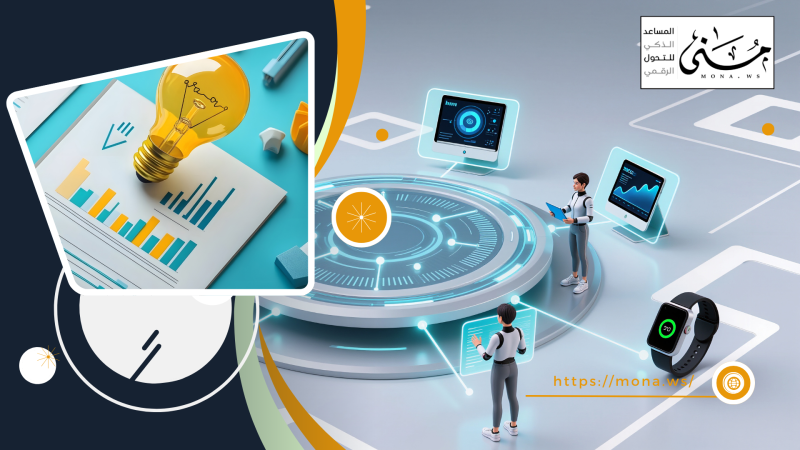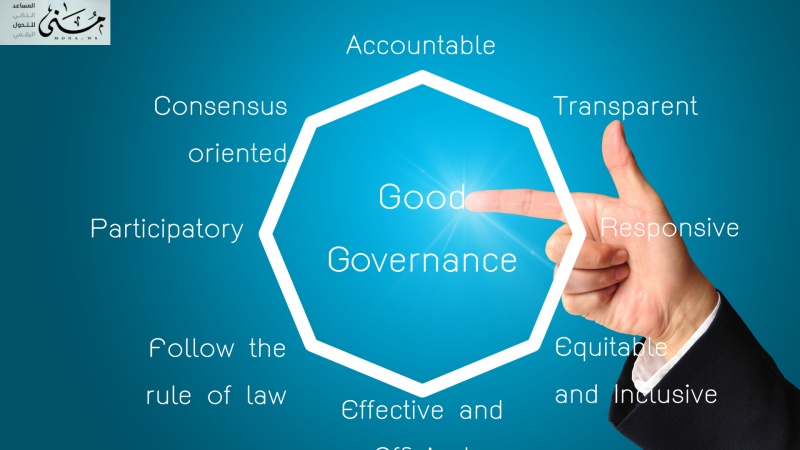At one large company, poor data organization caused reporting delays and lost critical information, resulting in significant losses. After facing a legal crisis over outdated data, the CEO realized the importance of information governance as a solution to control the chaos, and ensure data accuracy and accessibility.
By implementing governance policies, the company has transformed from randomness to efficiency, which has enhanced productivity and smart decision-making. In this article, we will explain information governance.
What is information governance?
Information governance is a set of policies and procedures that aim to organize and guide the management of information within organizations. This system includes ensuring the security of information, ensuring its effective use, and ensuring compliance with local and international legislation related to privacy and data protection. The governance system includes various types of information such as digital, paper, audio, and image data, and aims to enhance the ability to access and analyze it easily and securely.
Effective information governance is not just about keeping files or organizing them, but also ensuring that they are used in ways that support the organization's goals while maximizing their benefits to serve both public and private interests.

Important statistics in the field of information governance
According to recent studies, many companies face major challenges in the field of information management. Statistics highlight the current reality of governance:
- 80% of companies are unable to make the best use of their information due to lack of information governance systems.
- 90% of major companies across various sectors have already adopted integrated information governance systems to ensure smooth administrative operations.
- About 60% of organizations show increased productivity after implementing an effective information management system.
These figures highlight the importance of information governance as a key element in improving corporate performance and increasing their competitiveness in the market.
Evolution of information governance systems
Over the years, information governance systems have evolved significantly. Initially, systems were primarily based on manual archiving and filing of documents in vaults. As technology has advanced, systems have become more sophisticated to include automation, cloud storage, and intelligent data analysis. Today, organizations can leverage AI technologies to analyze big data and extract strategic insights from available information.
Digital transformation is one of the most prominent developments in this field, which has enabled companies to move from paper-based storage to an integrated digital work environment. This has helped speed up access to information, improve security, and facilitate collaboration between different teams.
Challenges in Information Governance
Despite the remarkable development in governance systems, there are many challenges facing institutions:
Data ProtectionOne of the biggest challenges facing data governance is ensuring that personal and financial data is protected from leakage or cyber attack.
Compliance with legislationWith the increasing local and international laws related to data protection (such asGDPR), organizations must ensure that they comply with all of these complex laws.
Big Data ManagementAnother challenge is the ability to manage and store big data in an efficient way that ensures easy access and analysis.
Integration between systemsCompanies face difficulty integrating data governance systems with existing systems in the organization, which hinders smooth workflow.
Information governance systems that can be adopted
In light of these challenges, there are several systems that organizations can adopt to improve data governance, including:
Doc Suite System: It is a modern web application that combines intelligent document management and administrative communications organization, enables the automation of procedures and the use of artificial intelligence to facilitate access to information, which improves productivity and reduces costs.
Documentary information management systems (DMS):like systemSharePoint from Microsoft, which provides document management integrated with other tools to improve collaboration between teams.
Cloud systems: likeGoogle Workspace and Microsoft 365, which provide a unified environment for documents and communications, making it easy to access information from anywhere, at any time.
Integrated Cyber Security SystemIt is essential that any information governance system has robust measures in place to protect data from potential attacks, such as:Fortinet or Palo Alto Networks.
Information governance is not just an option for organizations, it is a necessity to ensure security, compliance, and increased efficiency in data processing. Modern governance requires smart and sophisticated systems to balance access to information and its protection. By implementing effective systems such as DocSuite, organizations can improve the exploitation of their data, reduce the risks associated with it, and thus increase their competitiveness in the market.
Benefits of Data Governance for Enterprises
Organizations achieve many benefits when adopting data governance policies. We present to you the most important benefits so that you can understand their direct impact, which include:
Improve data qualityImplementing data governance systems helps ensure that data stored in an organization is accurate, up-to-date, and reliable, reducing errors in decision-making.
Enhance cyber securityGovernance ensures that sensitive data is protected from cyber threats, reducing the risk of breaches and leaks.
Increase compliance with regulations and legislation: Helps organizations comply with regulations such as the General Data Protection Regulation (GDPR).GDPR) and the Consumer Privacy Act (CCPA), protecting them from legal fines.
Improve work efficiencyReducing digital clutter and increasing access to information makes employees more productive, as they can easily find data instead of spending a long time searching for it.
Reduce operating costs: It helps reduce the need for unnecessary storage, reduce data duplication, and thus reduce the company's overhead.
The relationship between information governance and digital transformation
It is useful to know how data governance is an essential part of the digital transformation process, and this is shown in the following:
- Digital transformation is data-driven, and if there is no effective information governance, it can be difficult to achieve desired goals.
- Data governance systems help automate processes, making it easier for companies to implement digital transformation projects without the risk of data chaos.
- Organizations that rely on strong information governance are able to leverage technologies like artificial intelligence and advanced analytics more efficiently.
Effective Strategies for Implementing Information Governance
There are many organizations that realize the importance of information governance but face challenges in implementation, but they can follow several steps, which are:
Create clear data management policies.: Set rules that define how information is collected, stored, shared, and deleted.
Promote a culture of awareness of the importance of data: Train employees on information management best practices to ensure compliance and reduce human error.
Use of advanced technical tools:such as content management systems (ECM) and intelligent data analysis techniques to ensure information is organized effectively.
Periodic review of governance policies: To ensure that it is constantly updated to keep up with the latest trends and laws.
Many global companies have successfully implemented information governance policies, including:
- a companyIBM: Implements an integrated data management system that ensures information is protected and intelligently analyzed.
- BankJPMorgan Chase: Relies on strong information governance systems to ensure compliance with banking laws and protect customer data.
- Google and Microsoft: Implement strict data governance policies to ensure compliance with global regulations and protect user privacy.
Information governance is no longer just an administrative luxury, but has become an essential element to ensure the success and sustainability of organizations. By implementing clear policies and leveraging advanced technical tools, any organization can improve the efficiency of its operations, enhance the security of its data, and comply with regulatory standards with ease.
With the continuous developments in artificial intelligence and digital transformation, the future will see greater reliance on information governance, making investing in information management today a strategic move that ensures growth and competitiveness tomorrow.
 اليوم، حوكمة المعلومات ضرورة لأي مؤسسة تسعى للاستدامة والنجاح
اليوم، حوكمة المعلومات ضرورة لأي مؤسسة تسعى للاستدامة والنجاح










Comments
Add New Comment